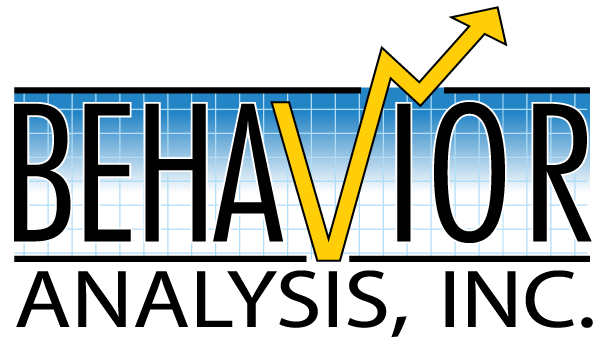The most inspiring stories come from everyday people who refuse to let challenges define them. Today, we are going to explore the perspective of a former client, Christopher,* who received ABA services for over 10 years and is now 27 years old. When he first arrived for ABA therapy in Miami, he struggled with his ability to express himself and manage everyday activities. He would often become overwhelmed with completing a simple task or transitioning to a new activity. This, coupled with an inability to communicate effectively, made learning in a traditional classroom impossible without support. He initially received services in our Miami ABA therapy clinic before returning to his home country. His therapists were trained in the implementation of ABA strategies with a primary focus on verbal behavior (an approach to ABA therapy that emphasizes teaching language and communication by their function). Our team at the Florida Autism Treatment Centers continued to provide supervision and consultation services throughout this time.
On a personal level, reconnecting with Christopher again was a great chance to catch up and appreciate just how far he’s come since we last spoke about 8 years ago. I was the primary BCBA who oversaw his ABA therapy upon his return home, and it wasn’t an easy journey. He will be the first to admit that his days were long and filled with uncertainty. With our guidance and the unyielding determination of Melissa*, his ABA therapist, he was able to overcome life’s twists and turns. From navigating early academic challenges and peer relationships to moving to New York to attend college, it has been a joy to have the privilege to cheer him on.
The following are excerpts from my conversation with Christopher.
- Can you tell me a little bit about your childhood?
I remember having to go through many different processes when I was younger. [I went] to three or four different schools and I had some learning issues. I had so much struggle to understand words and in getting connected with others as well. Which I think now I [am starting] to improve.
I remember a lot [about] how emotional I can get when things are bad or when I don’t get the things I want or when I [was] at school. I used to feel like I’m going to stay in school until midnight and [that used to] get me scared.
I have a lot of circumstances that [required me to ] have therapy. I know that I had Melissa who was my [former] therapist who I’ve been with for more than 10 years. When I started with her I knew that she was going to be there to get me to be where I’m supposed to be.
[In school], I think [I can say] I was not given the best education and the best treatment. I think I can say bullied but also taunted a lot from many people and there were times I couldn’t handle [it]. [With my] therapist, it took a lot of time and it took a lot work to [get through] a lot of things that I had been struggling with.
When I was younger, I remember feeling like things [were] moving very slow[ly]. I really wished that maybe the days or years would go by [quicker] but I know [now] that it [took a lot] for me to finally get to where I am right now, which is out of school, out of high school and out of anything like that.
I felt a lack of control with my mind and thoughts [that I had] to act upon. I think at times [things] can be much harder than before but the tears don’t come out as easily and I just continue to improve as an adult [and] as a person as much as possible.
- What would you say was the overall impact of ABA in your daily life growing up? What did you find the most helpful?
Getting me to be focused when maybe I would have never been focused on what I’m supposed to be doing or what I’m supposed to get done. It took years to get to where I am right now.
[Melissa] wouldn’t look away like others. If I wanted to speak to her about anything then she would [be there]. She wouldn’t ignore me. She [wouldn’t} make feel down or like I didn’t have someone to talk to.
- What would you like people to understand about ABA therapy?
I think you have to understand that it’s a challenging process and know that when you’re young and have learning issues it’s going to be a struggle. [You may] not actually wish to be in this position but know that this is what you need to improve and to go forward and graduate to get to where I am right now.
Of course, we hope your therapist can find a way to make it enjoy[able] and help you for the next 10 years!
- What qualities do you think make a good ABA therapist?
They should be a person who makes you feel comfortable to speak to or to enjoy a laugh at some things. [My therapist] was always there to get me to concentrate when I needed it and to move forward to where I should be to get the grades and education I needed. I think she was great in not giving up.
There are a few important things we can all take away from this interview that apply to all of us. First, it takes hard work to accomplish our goals, and sometimes, when you’re in it, this can be daunting but ultimately worth it. Throughout the interview, I was struck by Christopher’s humility. He frequently commented on things that he needed to work on as a person and always acknowledged the help he received throughout his life. The truth is, we’re all works in progress, molded by the guidance and grace of others, but few of us share Christopher’s humble outlook. Secondly, the invaluable gift of having someone by your side who understands you and is “great in not giving up” can make a life-changing impact. It’s also a nice bonus if they can make you laugh and enjoy the journey!
Written by Krystine Cardenas, BCBA
*Names have been changed to protect their privacy







Recent Comments